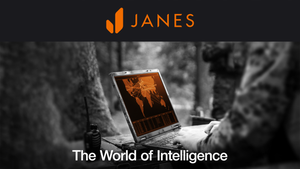
The World of Intelligence
Janes
Janes delivers validated open-source defence intelligence across four core capability areas threat, equipment, defence industry and country that are aligned with workflows across the defence industry, national security and government.
- 39 minutes 49 secondsLikelihood of a Chinese invasion of Taiwan
In this podcast Janes analysts F Xavier Casals and Claire Chu share their expertise with Harry Kemsley and Sean Corbett to explore the likelihood of a Chinese invasion of Taiwan. They discuss the analytic tools and insight they use to provide a framework for indicator and warning analysis and why a non-military invasion may be more likely.
28 January 2025, 6:00 am - 26 minutes 49 secondsRound up 2024
Harry Kemsley and Sean Corbett reflect on a year packed with podcasts. In the 26 episodes published in 2024, alongside their panel of guests, they explored emerging and current threats, global security trends, and the impact of misinformation, disinformation and artificial intelligence on open-source intelligence and society.
8 January 2025, 5:00 pm - 37 minutes 56 secondsLanguage and Linguistics in OSINT
Harry Kemsley and Sean Corbett are joined by Claire Fuchs, an analyst on the Janes Geoeconomic Influence and Threat Intelligence (GITI) team, to discuss why the nuances of language and linguistics are important to the interpretation of open-source intelligence (OSINT). As a speaker of nine languages Claire explores the need to approach language with caution and the limitations of artificial intelligence (AI) in interpreting and translating language.
23 December 2024, 8:26 am - 40 minutes 1 secondLarge Language Models (LLMs) cure or curse for OSINT?
Artificial intelligence (AI) and large language models are becoming a mainstay in our daily lives, but how are these tools being used in delivering open-source intelligence? Janes Red Team Analyst Harry Lawson explores the role these tools have in intelligence tradecraft, uncovering the balance between cutting-edge technology and established analytical standards.
10 December 2024, 6:34 am - 27 minutes 13 secondsIs it time to redefine OSINT? - part two
In the second part of this podcast Joseph Hatfield PhD and David Gioe PhD continue to explore the challenge of defining open-source intelligence (OSINT), why it should be considered a fundamental form of intelligence and why now might be the right time to redefine OSINT.
26 November 2024, 6:36 am - 49 minutes 5 secondsIs it time to redefine OSINT? - Part one
Joseph Hatfield PhD and David Gioe PhD join Harry and Sean to discuss the challenge of defining open-source intelligence alongside other intelligence disciplines and why now might be the right time to redefine OSINT.
19 November 2024, 6:54 am - 45 minutes 53 secondsNorth Korea - The hardest OSINT environment?
Rachel Minyoung Lee, Senior Fellow for the Stimson Center’s Korea Program and 38 North and Cristina Varriale, Janes lead analyst - APAC join Harry Kemsley and Sean Corbett to explore the closed environment of North Korea, its changing strategic allegiances and what the reported deployment of North Korea troops to Russia means for global stability.
5 November 2024, 6:30 am - 36 minutes 30 secondsThe situation in Israel - Lebanon part two
With the situation in Israel and Lebanon continuing to evolve, Janes analysts Elliot Chapman and Suraj Ganesan return to join Harry Kemsley and Sean Corbett to provide an update on the situation on the ground and the strategic implications of the conflict for regional security.
22 October 2024, 8:25 am - 43 minutes 22 secondsThe situation in Israel - Lebanon
Janes analysts Elliot Chapman and Suraj Ganesan join Harry Kemsley to share their insight and analysis on the situation that has escalated in Israel and Lebanon. They explore the impact of the conflict on Israel and Hizbullah resources and the geopolitical and strategic implications emerging from the displacement of civilians.
Elliot and Suraj also explore how open-source intelligence accelerates their understanding of the situation and the tradecraft they follow to verify and validate these sources.
9 October 2024, 8:39 am - 45 minutes 49 secondsThe threat of misinformation and disinformation
Harry Kemsley and Sean Corbett take a closer look on the increasing use and threat of misinformation and disinformation. They explore the differences between the two and why now more than ever it is important for analysts to use tradecraft to overcome these threats to ensure analysis is formed on truth and intelligence can be trusted.
17 September 2024, 5:25 am - 39 minutes 33 secondsArtificial Intelligence in Tradecraft
Harry Kemsley and Sean Corbett are joined by IBM master inventor Martin Keene to explore the impact of Artificial Intelligence (AI) on open-source intelligence. The panel discusses how AI can support tradecraft, the future of AI-driven predictive analytics, and why humans are critical in evaluating AI analysis.
10 September 2024, 5:39 am - More Episodes? Get the App
Your feedback is valuable to us. Should you encounter any bugs, glitches, lack of functionality or other problems, please email us on [email protected] or join Moon.FM Telegram Group where you can talk directly to the dev team who are happy to answer any queries.
 Modern War Institute
Modern War Institute
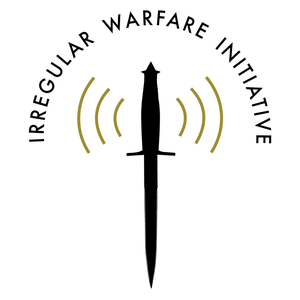 Irregular Warfare Podcast
Irregular Warfare Podcast
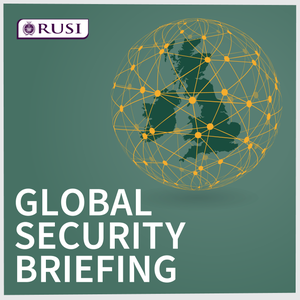 Global Security Briefing
Global Security Briefing
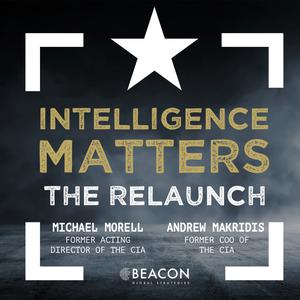 Intelligence Matters: The Relaunch
Intelligence Matters: The Relaunch
 SpyCast
SpyCast
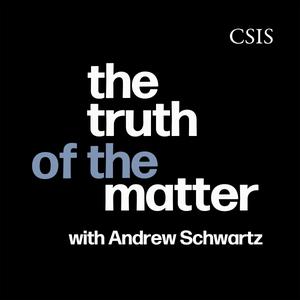 The Truth of the Matter
The Truth of the Matter